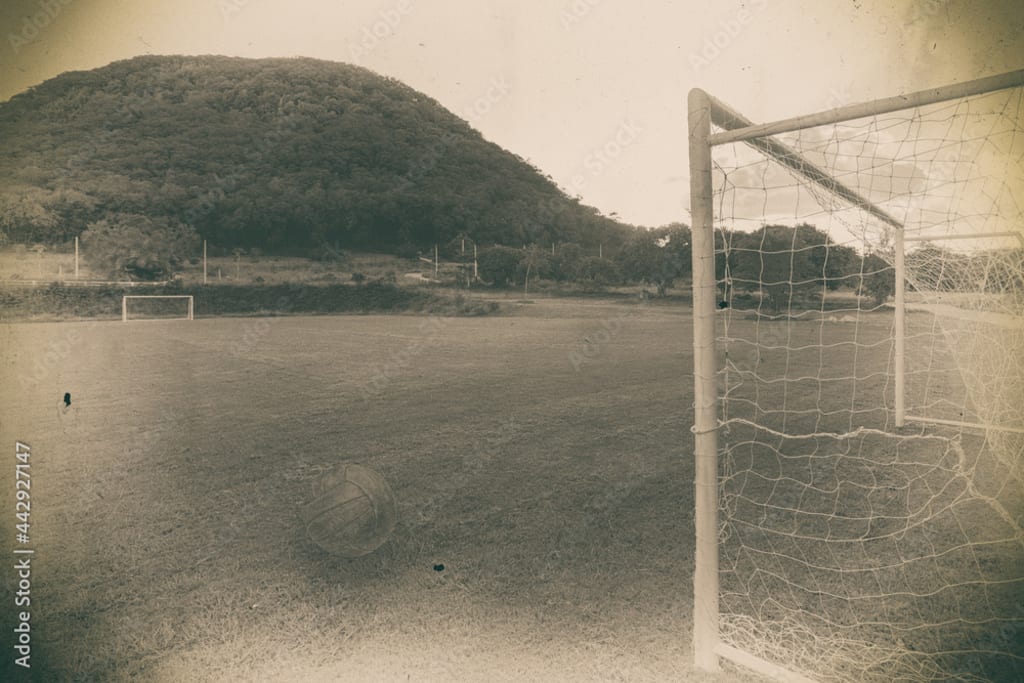Soccer: A Journey Through Time - The Beautiful Game's Historical Odyssey
From Street Chaos to Global Spectacle - The Remarkable Evolution of Soccer

Soccer, the world's most popular sport, has a rich and captivating history that spans centuries and continents. From its humble beginnings as a simple game played in the streets of ancient civilizations to the global phenomenon we know today, soccer has evolved in remarkable ways. In this article, we embark on a historical odyssey through time, exploring the fascinating journey of soccer from its origins to its current status as a global cultural force.
The Birth of a Game
Soccer's origins can be traced back to ancient civilizations, where variations of the sport were played using balls made from materials like animal bladders and leather. The Chinese game of cuju, played around 2,500 years ago, involved kicking a ball into a net – a rudimentary form of goal-scoring that bears a striking resemblance to modern soccer.
Throughout history, similar ball games were played in various cultures, including the Greeks and Romans, who called their version "harpastum." These early forms of soccer were often violent and lacked standardized rules, but they shared a common objective: to score goals by getting the ball into the opposing team's territory.
Medieval Madness
The medieval period saw the emergence of soccer-like games across Europe. One of the most famous early references comes from England, where "mob football" was played in towns and villages during holidays. These chaotic matches involved entire communities and were a far cry from the organized games we know today. Pitch invasions, rough tackles, and a complete disregard for rules were the norm.
However, over time, efforts were made to introduce some semblance of order. In the 19th century, schools and universities in England began to codify rules for soccer. In 1863, the formation of the Football Association (FA) marked a significant turning point. The FA's rules became widely adopted, providing a foundation for the modern game.
The Emergence of Modern Soccer
As the 19th century drew to a close, soccer underwent a transformation from a chaotic street game to a structured sport. The introduction of the crossbar in 1868, the penalty kick in 1891, and the offside rule in 1866 all contributed to shaping the modern game. Soccer clubs began to sprout across England, and leagues were established.
The 20th Century and Global Expansion
The 20th century witnessed the global spread of soccer. The sport was introduced to South America in the late 19th century by British expatriates, leading to the formation of the South American Football Confederation (CONMEBOL). The first international match was played between Argentina and Uruguay in 1901, marking the beginning of a fierce rivalry.
Meanwhile, soccer was making inroads into new territories. FIFA, the international governing body of soccer, was founded in 1904 in Paris, with the aim of organizing and promoting the sport on a global scale. The first FIFA World Cup took place in 1930 in Uruguay, further solidifying soccer's status as a global spectacle.
The post-World War II era saw the sport's popularity surge. Iconic players like Pelé, Diego Maradona, and Johan Cruyff became household names. Television broadcasts of matches allowed fans worldwide to witness the grace and brilliance of these legends, elevating soccer to unparalleled heights.
Soccer as a Cultural Phenomenon
Beyond the realm of sports, soccer became a cultural force. It transcended borders, language barriers, and political divides. The World Cup, in particular, became a symbol of unity and celebration, bringing nations together in the spirit of competition and camaraderie. Iconic moments like the "Hand of God" and Maradona's "Goal of the Century" in the 1986 World Cup left an indelible mark on the collective memory of soccer fans worldwide.
Soccer has also been a catalyst for social change. In apartheid-era South Africa, the sport played a significant role in breaking down racial barriers. The story of Nelson Mandela's support for the South African national team, the Springboks, during the 1995 Rugby World Cup is a testament to the power of sports in fostering reconciliation.
Modern Challenges and the Future
Today, soccer faces new challenges, including issues of corruption, inequality, and the impact of commercialization. However, it continues to evolve and adapt. The sport has embraced technology, with the introduction of goal-line technology and Video Assistant Referee (VAR) systems to ensure fair play.
As we look to the future, soccer remains a global cultural phenomenon, connecting people from all walks of life. It continues to inspire generations, create heroes, and provide moments of pure joy and heartbreak. The beautiful game's historical odyssey is far from over, and the world eagerly awaits the next chapter in this timeless story.
About the Creator
Catalin Daniel Lazar
Sports enthusiast, soccer & football lover, married with a child. My passion for writing shines in sports articles, especially soccer.
Enjoyed the story? Support the Creator.
Subscribe for free to receive all their stories in your feed. You could also pledge your support or give them a one-off tip, letting them know you appreciate their work.






Comments
There are no comments for this story
Be the first to respond and start the conversation.